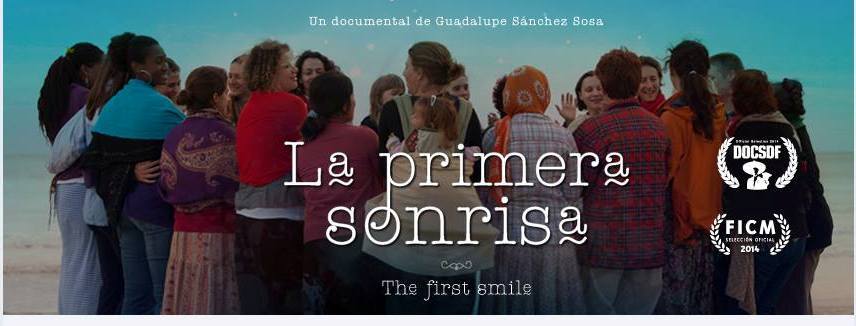All these things are true, although sometimes a bit repetitive from a birth worker's perspective. But here I am, still watching films about birth. One of the reasons why I do it is because each one speaks to a difference audience, connects with different people, and holds a unique piece of wisdom.
La Primera Sonrisa is a documentary made by Mexican filmmaker Guadalupe Sánchez Sosa. What makes this film special is its unique cultural perspective, as well as its focus on sexuality and emotions in birth. The film follows internationally renowned midwife Naoli Vinaver, whose own homebirth short film, Día de Nacimiento, became famous in the birth world in 2015.
MIDWIVES AS HEALERS
Naoli's playful, wise and loving personality is helping form a new generation of birth workers who are doing profound work on themselves, on their own healing, in order to bring healing to the families they are working with.
In Mexico, as well as many other Latin American countries, traditional midwives are healers. Not only do they catch babies, but they know how to work with medicinal plants, they have a deep knowledge of body work, and they often help you heal deep emotional wounds, as they know that the mind, the body and the emotions are all tightly intertwined.
UNPACKING YOUR CULTURAL CONDITIONING
La Primera Sonrisa invites the spectator to take a deep look at the baggage they might be bringing into birth and parenthood. What are the messages society gave you about your body, about your voice, about your worth? Do you believe those messages? Do they still serve you or is it time to let them go, to let your old self die and be reborn? The film is not afraid of showing this emotional process can be painful, transformative and hard to put in words.
This film also acknowledges that birth is part of the sexual life of a woman. Other films, such as Orgasmic Birth (Naoli is also in that film!), explore this idea more in depth. In La Primera Sonrisa the subject is less formal and it gets expressed through intimate conversations full of laughter and collective grieving over the effects of patriarchy on the lives of women.
Some parts of the film are intense in ways that are not commonly seen in birth movies. Yes, there are some of your typical birth scenes where you see exactly how babies are born, but I'm not taking about that. I'm talking about how this film allows us to witness powerful emotional release, rites of passage, and ceremonies of sort, which hold incredible relevance to the preparation of these holistic midwives and birthgivers.
Overall, the documentary has a dreamy, flowy tone to it that resonates with pregnancy itself. The art and animation of the movie are truly beautiful. It travels from Mexico to Brazil and back to Mexico again, following powerful gatherings of women healing each other, themselves and the world.
Unfortunately, I haven't found a way to watch this documentary in the States. I have a DVD I got in Mexico (which is now part of my lending library for my doula clients). The film is available on Ecuator's iTunes Store and maybe if enough people requested, we will be able to stream it in other parts of the world.
If you get a chance to watch this film, let me know what you think!


